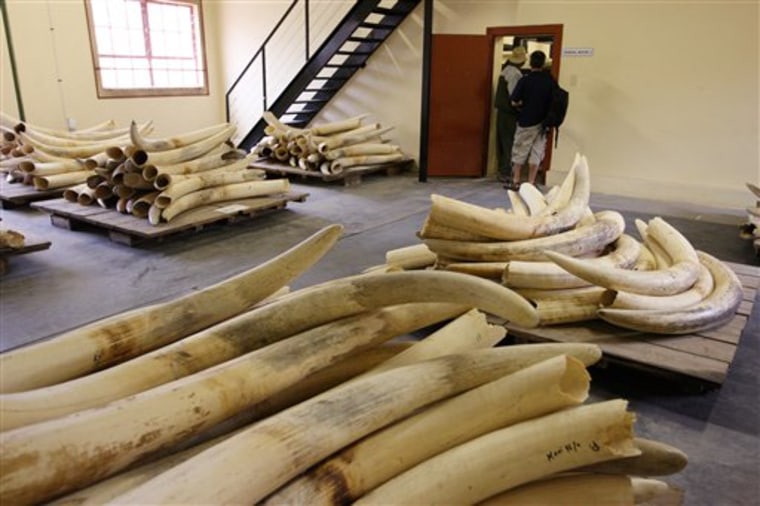Controversial ivory auctions — the first in nearly a decade — have sold just over 100 tons of tusks to Chinese and Japanese traders, and raised nearly $15 million for elephant conservation.
The weeklong sales took place in four African nations granted a one-off exemption from the global ban on trade in ivory because of their thriving elephant herds and ended in South Africa on Thursday.
They were given the go-ahead after heated debate within the Convention on International Trade in Endangered Species of Wild Fauna and Flora, or CITES, and prompted protests from African nations with dwindling elephant populations and some animal welfare groups that the increase in supplies on Asian markets would stimulate demand, smuggling and poaching.
"We fully appreciate and embrace our responsibility to ensure that we stamp down on poaching of any kind and so we intend to use considerable amounts of the funds we raise today toward increasing our anti-poaching capacity," said David Mabunda, chief executive of South African National Parks.
At the closed door sale in the capital, Pretoria, South Africa auctioned some 47 tons of ivory stockpiled at the Kruger National Park to 12 Chinese and 22 Japanese buyers. It raised $6.7 million, or an average price of $142 per kilogram (2.2 pounds), according to a national parks statement.
Using price as poaching deterrent
This is a fraction of what tusks fetch on the black market in Asia, where it is used to produce jewelry and art works.
Willem Wijnstekers, head of CITES, said he hoped the relatively low price fetched at the controlled, legal sales would send a message to black marketeers.
"Importers should see that they can buy ivory cheaper from legal sources," he said in a telephone interview. "I hope that poachers will see that it is not necessarily worth the risk in poaching ivory."
But despite the controls, some environmentalists like the International Fund for Animal Welfare, fear that the ivory will end up on the black market in Asia and encourage poaching.
The money from the sales in South Africa, Namibia, Botswana and Zimbabwe will be used for conservation programs and to help local communities who often complain that their crops are trampled by roaming herds.
Under terms agreed with CITES, South Africa and its neighbors will not be allowed to export ivory again for nine years.
Even though the elephant is classed as "vulnerable" at international levels, South Africa's elephant population of 20,000 is set to double by 2020, placing a heavy toll on the balance of nature in the Kruger National Park and other wildlife centers.
The government last year warned that it would have to resume killing elephants — banned since 1995 — as a last resort to try to control the population explosion.
Ivory trade was banned globally in 1989, but reviving elephant populations allowed African countries to make a one-time sale to Japan and China.
